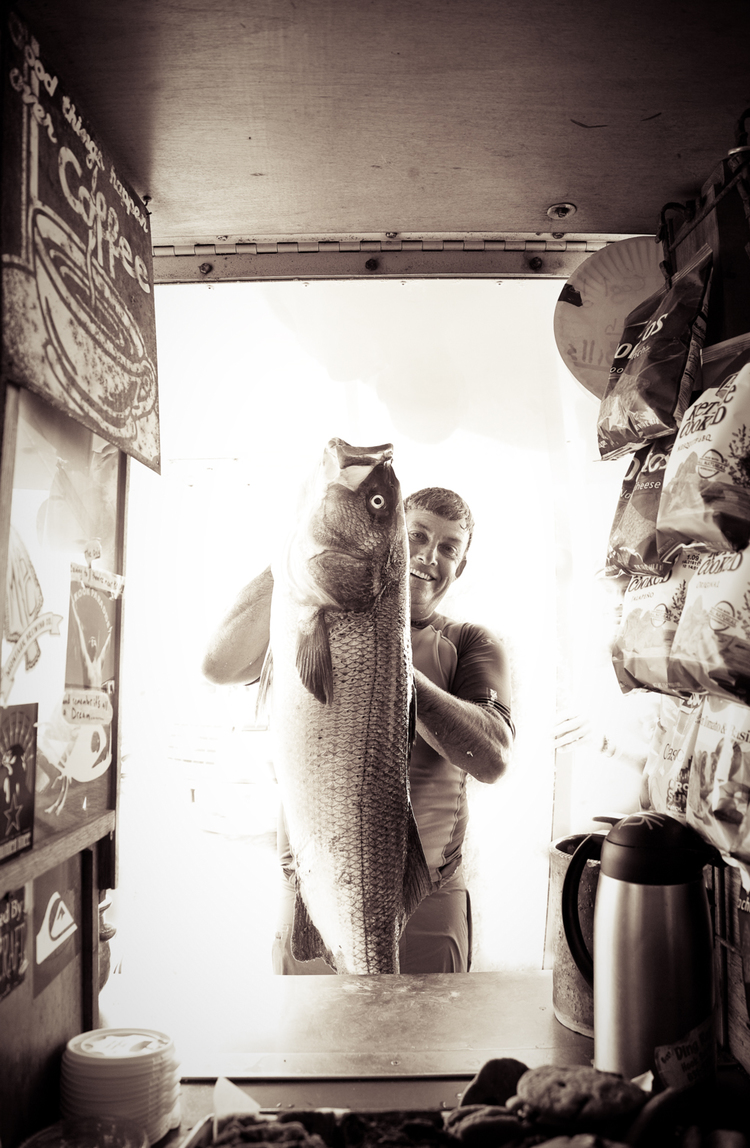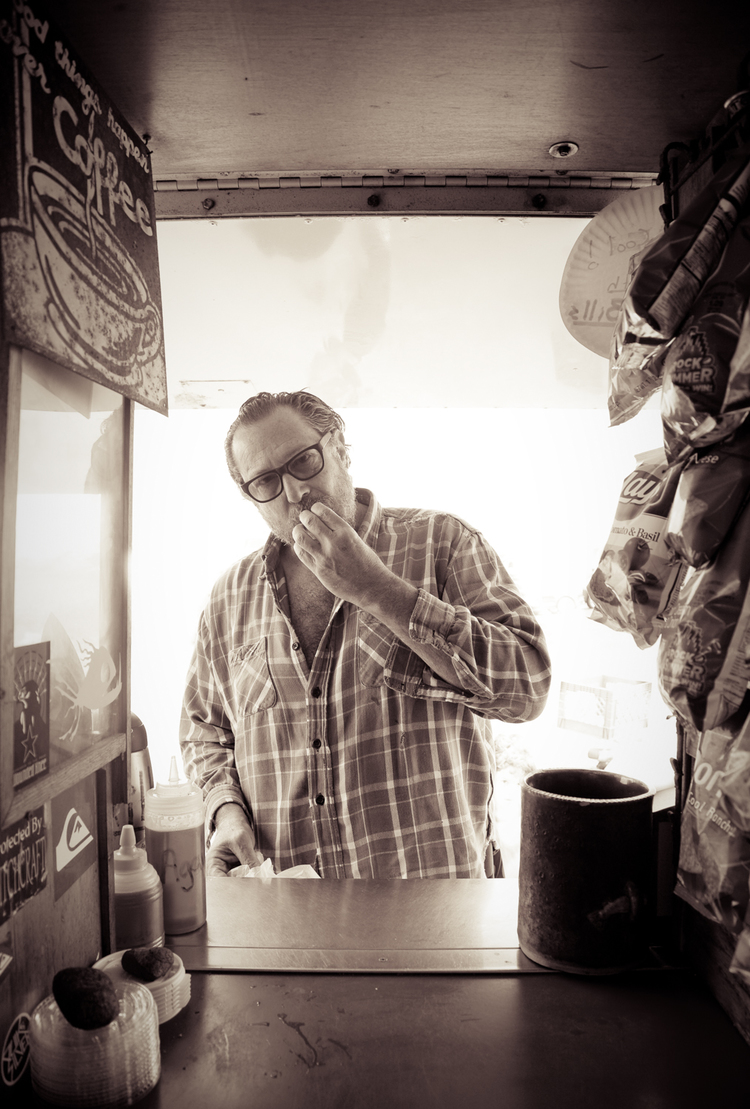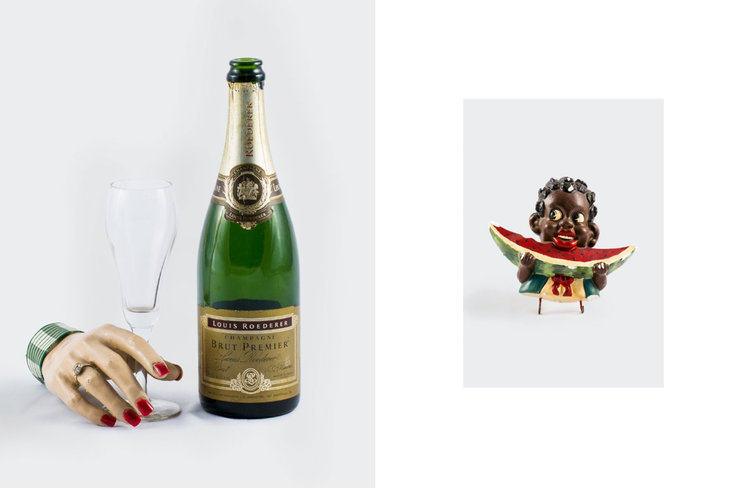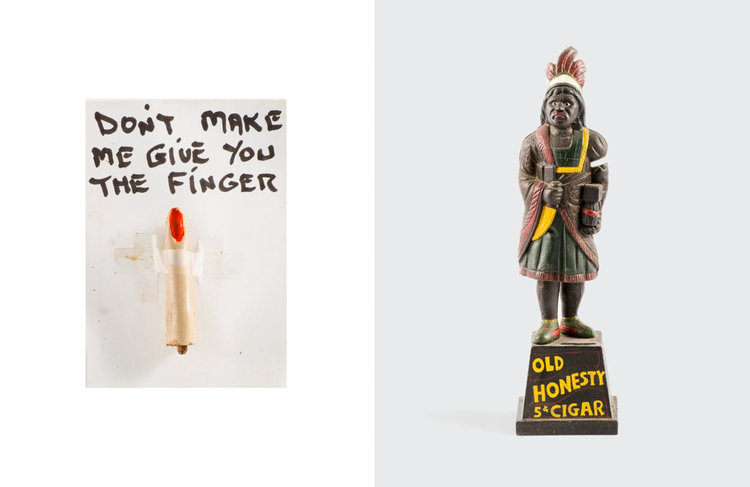About a year ago, a new swimwear company based in Rockaway, New York, popped onto our radar. The brand produces a focused line of womens swimwear which is both stylish and thoughtfully crafted with the surfer in mind.
We don’t care what you’ve seen in the magazines, the reality for most women is that surfing in a bikini is a constant nightmare of readjustment, wedgies and unwanted exposure. If you’re a guy reading this, imagine surfing in a jockstrap and tell me how you’d feel taking an outside set on the head. “At peril” is the phrase you’re looking for.
We caught up with Tuulikki founder and designer, Helena Dunn (a fellow Brit! - Ed), to learn more about her company.
Ed Thompson: Tuulikki is a little over a year old and you're about to launch your second collection. How are you feeling about the journey so far?
Helena Dunn: From the start I’ve felt like it has its own momentum and that it’s kind of my job to shepherd it along, which involves finding the most aligned collaborators and protecting it from going in directions it’s not meant to. In that sense it’s been a dance of intuition, faith and patience – knowing when to push and when to go with the flow. The most joyful part has been experiencing the reaction of women discovering our product and being so psyched on it. That’s what it’s all about: creating a service so women feel seen and empowered.
ET: Chris Gentile gave us a great quote about ‘having the courage to let all the different passions in your life touch one another.’ It seems like you might have found that place for yourself?
HD: Oh yes, Chris hit the nail on the head with that one. Tuulikki represents my deepest held beliefs and longings. It’s in service of so many things that I care about, which makes me feel incredibly grateful and humbled. I’d even say I regard Tuulikki as more of a spiritual becoming than a business venture. Of course it needs to make money to survive but I see it more as an energetic frequency that needs to exist and I trust it to evolve as it’s supposed to.
ET: You've just wrapped this incredible photoshoot with Karina Petroni and New York longboarder & cinematographer Mikey De Temple. Tell us how that came about and its significance for the brand.
HD: Mikey De Temple is a friend and such a talented creative. We’ve started to collaborate and are planning to shoot together a bunch, which is super exciting because we’re both based in NYC and share a passion for East Coast surfing, telling the story of what it is to be a surfer out here. Karina is someone whom I’ve admired for a long time for many reasons. She lives and breathes the ocean and also she takes the health and strength of her body very seriously, in a way that is beyond aesthetics. She’s indefinable and has a real depth of integrity. Mikey and Karina have been friends since they were kids and so he shot this while visiting her and her husband in the Bahamas where they live. In the shoot she’s wearing some signature pieces from our core collection and I see it as a celebration of this incredible woman, the choices she’s made and her connection with the ocean, all through the lens of her good friend, which I think is a beautiful thing to capture.
ET: As a fellow Brit, who also grew up in the English countryside, I can relate to some of the experiences you've described in previous interviews - but I've never been to Finland. What is your favorite memory of Finland, where you spend your childhood summers?
HD: We would spend time at our family summer cottage, which is some kind of portal to the past. My great grandparents, who built it, were artisans and everything inside was made by them or by our relatives. For that precious time, our lives were all about being outdoors and pretty much off-grid aside from the occasional drive to the local market. All activity centered around the lake and being more connected to nature and one another: boating, fishing, swimming and the daily rituals of morning and evening saunas, followed by hurtling your naked bodies into the cold water. During these summer holidays the mundane world of school, homework, even television, was so far away and the simplicity of the past held us in that space.
ET: Caring for the environment is clearly an important aspect of Tuulikki. What are some of the key environmental threats you want to raise awareness about in your business journey?
HD: First and foremost I hope to be one of the voices in battle that helps change the manufacturing standards dominating the fashion industry. Patagonia is a huge influence on our business practices and how we want to grow. There are three main areas I hope to raise awareness about. Firstly, our overconsumption of plastics. Secondly, the importance of offsetting our carbon usage as individuals and businesses as we shift towards renewable energy. Finally, one of the biggest environmental threats we face is losing connection with nature entirely by just focusing on little screens all the time. Tuulikki exists to encourage women to connect with their bodies and nature – to feel that sense of oneness. I made this brand not because I think people should buy more stuff but rather because I want to get more women in the water. Surfing and being immersed in that feeling creates a virtuous circle where you feel a responsibility to take care of this beautiful planet. If more people felt like this on a weekly or daily basis, I’m confident we would see big positive change in people’s consumer habits and healthier lifestyles all around.
ET: One of the things we wrote about in the book is how sexist the surf world can be. Women's swimwear often seems designed to sexualize and objectify the female body, and Tuulikki is responding to that by making something that's stylish, functional and empowering. How do you explain why this is so important to people (mostly men) who haven't taken a gender studies class?
HD: We’re at an interesting moment on that front with the #metoo movement and a general shift in public perception regarding the subtle boundaries of sexism, exploitation and what will no longer be tolerated. The surf industry, like all industries, has problems in this area and progression needs to be made in how young women are represented in the sport. My specialism is design and so that’s where I’m able to be a social activist of sorts. I found the minimal amount of attention that was going into bikini design in the surf industry infuriating and incredibly patronizing. It just seemed to directly correlate with the lack of respect women’s surfing has within the industry versus men’s. This is certainly changing by all accounts, but the point is that a surf bikini should be more than just a bikini because it’s not there for decoration and this brings us to the main point, which is that WOMEN ARE NOT DECORATION.
ET: Right on! Tell us about your design process - where do you go for inspiration?
HD: The design process for this brand is very restricted .. in a good way. We only use sustainable, recycled fabrics, we only work with mills that have the best eco practices, we only work with ethical factories that are local to the markets we serve and we only make things we truly believe need to exist. I try to make bikini sets that are good for different body types and ages, providing a range of coverage and protection depending on the surfer’s individual needs. So, when I design, my mind moves around the body and the lifestyles of the people using it. I also talk a lot to my customers and fellow surfers to see what they’re feeling. I consider things like; will this travel well? Does it dry quickly? Is it lightweight? For example, I design the suits to be layerable, making sure that the pieces and their lines go together so you can have an option to surf in your bikini and then throw on a perfectly complementary second layer if the sun is strong or you’re getting board chafe or it’s a little cooler than you thought it would be. The line is a simple curation of essential pieces. Minimalist, timeless, highly functional but without the athletic trappings you might find in some ‘sporty’ bikinis.
We’d like to thank Helena for taking the time to answer our questions and encourage you to check out the awesome collection she’s put together here!
Photography by Mikey DeTemple












